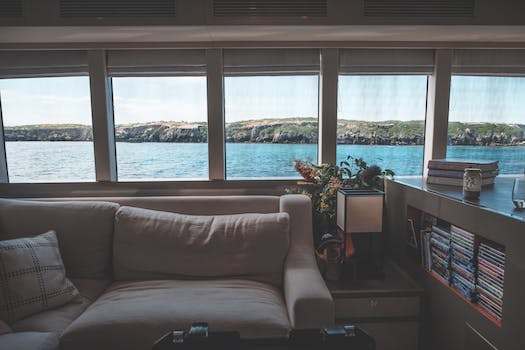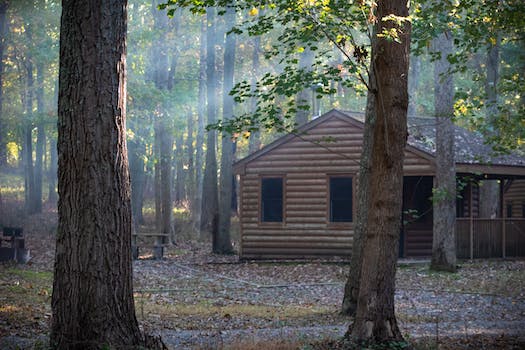How To Live On An Island Cheap
“Island living on a budget: tips and tricks for a frugal paradise lifestyle.”
Introduction
Living on an island can be a dream come true for many people. However, the cost of living on an island can be quite high. In this article, we will discuss some tips on how to live on an island cheaply.
10 Tips for Living on an Island on a Tight Budget
Living on an island can be a dream come true for many people. The beautiful beaches, the fresh sea air, and the laid-back lifestyle are all very appealing. However, living on an island can also be expensive. The cost of living on an island can be much higher than on the mainland, and this can be a challenge for those on a tight budget. But don’t worry, there are ways to live on an island cheaply. Here are 10 tips for living on an island on a tight budget.
1. Choose the right island
The first step to living on an island cheaply is to choose the right island. Some islands are more expensive than others, so it’s important to do your research. Look for islands that have a lower cost of living, and that are not as popular with tourists. These islands are often cheaper because they don’t have as many amenities or attractions.
2. Rent a small apartment
When it comes to housing, renting a small apartment is often the cheapest option. Look for apartments that are close to the beach or other attractions, as this can save you money on transportation. You can also save money by sharing an apartment with a roommate.
3. Cook your own meals
Eating out can be expensive, especially on an island. To save money, cook your own meals at home. Buy groceries in bulk and plan your meals in advance. This will not only save you money, but it will also help you eat healthier.
4. Use public transportation
If you don’t have a car, use public transportation to get around. Many islands have buses or ferries that are cheap and convenient. You can also rent a bike or scooter to get around.
5. Shop at local markets
Instead of shopping at expensive supermarkets, shop at local markets. You can often find fresh produce and other items at a much lower cost. Plus, shopping at local markets supports the local economy.
6. Take advantage of free activities
Many islands have free activities, such as hiking trails, beaches, and parks. Take advantage of these activities to save money on entertainment. You can also look for free events, such as concerts or festivals.
7. Avoid tourist traps
Tourist traps are often expensive and overpriced. Avoid these areas and look for local spots instead. You can often find cheaper food and drinks at local bars and restaurants.
8. Use coupons and discounts
Look for coupons and discounts for local attractions and activities. You can often find these online or in local newspapers. This can save you money on things like tours, museums, and other attractions.
9. Live a minimalist lifestyle
Living a minimalist lifestyle can help you save money on an island. Focus on the things that are important to you, and avoid buying unnecessary items. This can help you save money on things like clothes, electronics, and other items.
10. Find a job
If you’re living on an island long-term, finding a job can help you save money. Look for jobs in the tourism industry, or in other areas that are in demand on the island. This can help you earn money while also enjoying the island lifestyle.
Living on an island can be expensive, but it doesn’t have to be. By following these tips, you can live on an island cheaply and enjoy all that island life has to offer. Remember to choose the right island, rent a small apartment, cook your own meals, use public transportation, shop at local markets, take advantage of free activities, avoid tourist traps, use coupons and discounts, live a minimalist lifestyle, and find a job. With these tips, you can live on an island on a tight budget and enjoy the beauty and tranquility of island life.
Frugal Living: How to Cut Costs on an Island Lifestyle

Living on an island can be a dream come true for many people. The sun, the sand, and the sea are alluring, but the cost of living on an island can be quite high. However, with a little bit of planning and some frugal living tips, you can live on an island without breaking the bank. Here are some tips on how to live on an island cheap.
1. Find Affordable Housing
Housing is one of the biggest expenses when it comes to living on an island. However, there are ways to find affordable housing. Look for apartments or houses that are a little further away from the beach or tourist areas. These areas tend to be less expensive. You can also consider sharing a house or apartment with roommates to cut down on costs.
2. Cook Your Own Meals
Eating out can be expensive, especially on an island where the cost of living is high. Instead of eating out, cook your own meals. Buy groceries in bulk and plan your meals in advance. This will not only save you money but also ensure that you eat healthy and nutritious meals.
3. Use Public Transportation
If you don’t have a car, consider using public transportation. Many islands have buses or ferries that can take you around the island. This is a cheaper option than renting a car or taking a taxi. You can also consider walking or biking if the distance is not too far.
4. Shop at Local Markets
Instead of shopping at expensive supermarkets, shop at local markets. Local markets tend to have fresh produce and seafood at a lower cost. You can also support local businesses by shopping at these markets.
5. Find Free Activities
Living on an island doesn’t mean you have to spend a lot of money on activities. There are many free activities that you can do. Go for a hike, swim in the ocean, or have a picnic on the beach. You can also attend local events or festivals that are free.
6. Use Energy-Efficient Appliances
Electricity can be expensive on an island. To save on electricity costs, use energy-efficient appliances. This includes LED light bulbs, energy-efficient refrigerators, and air conditioners. You can also consider using a clothesline instead of a dryer to save on electricity costs.
7. Use Coupons and Discounts
Look for coupons and discounts for activities, restaurants, and other services. Many islands have coupon books or websites that offer discounts on various services. You can also sign up for loyalty programs to get discounts on future purchases.
Living on an island can be expensive, but with these frugal living tips, you can live on an island cheap. By finding affordable housing, cooking your own meals, using public transportation, shopping at local markets, finding free activities, using energy-efficient appliances, and using coupons and discounts, you can save money and enjoy the island lifestyle.
Island Living on a Shoestring: Budget-Friendly Ideas
Living on an island can be a dream come true for many people. The sun, the sand, and the sea are alluring, but the cost of living on an island can be quite high. However, with a little bit of planning and creativity, it is possible to live on an island cheaply. Here are some budget-friendly ideas for island living on a shoestring.
1. Find Affordable Accommodation
The cost of accommodation on an island can be quite high, but there are ways to find affordable options. Look for guesthouses, hostels, or homestays instead of hotels. These options are usually cheaper and offer a more authentic experience. You can also consider house-sitting or renting a room in a shared apartment. Another option is to camp on the beach, but make sure to check the local regulations before setting up camp.
2. Cook Your Own Meals
Eating out on an island can be expensive, so it’s a good idea to cook your own meals. Look for local markets and grocery stores to buy fresh produce and ingredients. You can also try street food, which is usually cheaper than restaurants. If you’re staying in a hostel or guesthouse, ask if they have a communal kitchen that you can use. Cooking your own meals not only saves money but also allows you to try local ingredients and flavors.
3. Use Public Transportation
Renting a car or scooter on an island can be expensive, so it’s a good idea to use public transportation. Look for buses, ferries, or shared taxis to get around. You can also rent a bicycle or walk if the distances are short. Using public transportation not only saves money but also allows you to interact with locals and see the island from a different perspective.
4. Explore Free Activities
Islands are usually known for their beaches and water activities, but there are also many free activities to explore. Look for hiking trails, parks, and cultural events that are free or have a low entrance fee. You can also explore the local markets, museums, and galleries. Another option is to volunteer for a local organization or community project. Exploring free activities not only saves money but also allows you to learn more about the local culture and community.
5. Be Mindful of Your Expenses
Living on an island can be tempting, with all the activities and experiences available. However, it’s important to be mindful of your expenses and budget accordingly. Keep track of your expenses and prioritize the activities and experiences that are important to you. You can also look for discounts and deals, such as group rates or off-season prices. Being mindful of your expenses not only saves money but also allows you to enjoy your island experience without worrying about finances.
In conclusion, living on an island can be a dream come true, but it doesn’t have to be expensive. By finding affordable accommodation, cooking your own meals, using public transportation, exploring free activities, and being mindful of your expenses, you can live on an island cheaply. Remember to enjoy the sun, the sand, and the sea, but also to appreciate the local culture and community. Island living on a shoestring is possible, and it can be a rewarding and unforgettable experience.
Living the Island Life for Less: Money-Saving Strategies
Living on an island can be a dream come true for many people. The sun, the sand, and the sea are alluring, but the cost of living on an island can be quite high. However, with some smart planning and budgeting, it is possible to live on an island cheaply. Here are some money-saving strategies to help you live the island life for less.
1. Choose the Right Island
The first step to living on an island cheaply is to choose the right island. Some islands are more expensive than others, so it’s important to do your research before you make a move. Look for islands that have a lower cost of living, affordable housing, and access to basic amenities like grocery stores and healthcare facilities.
2. Rent a Room or Share a House
Renting a room or sharing a house with other people is a great way to save money on housing costs. Look for roommates or housemates who share your values and lifestyle. You can split the rent, utilities, and other expenses, which can significantly reduce your living costs.
3. Cook Your Own Meals
Eating out on an island can be expensive, so it’s a good idea to cook your own meals. Buy groceries in bulk and plan your meals in advance. You can also try local cuisine and street food, which is often cheaper than eating at restaurants.
4. Use Public Transportation
If you don’t have a car, use public transportation to get around the island. Buses, ferries, and trains are often cheaper than taxis or rental cars. You can also walk or bike to save money and stay fit.
5. Shop at Local Markets
Local markets are a great place to buy fresh produce, seafood, and other goods at a lower cost. You can also support local farmers and businesses by shopping at these markets. Look for deals and discounts, and don’t be afraid to negotiate prices.
6. Find Free Activities
Islands are often known for their natural beauty and outdoor activities. Look for free or low-cost activities like hiking, swimming, and beachcombing. You can also join local clubs and groups to meet new people and explore the island.
7. Work Remotely or Freelance
If you have a job that allows you to work remotely, take advantage of it. You can work from anywhere on the island and save money on commuting costs. You can also freelance or start your own business to generate income and have more control over your schedule.
8. Use Energy-Efficient Appliances
Using energy-efficient appliances can help you save money on your utility bills. Look for appliances with the Energy Star label, which indicates that they meet energy efficiency standards. You can also use natural light and fans instead of air conditioning to reduce your energy consumption.
Living on an island can be a wonderful experience, but it doesn’t have to be expensive. By following these money-saving strategies, you can live the island life for less. Remember to be mindful of your spending, prioritize your needs, and enjoy the simple pleasures of island living.
Surviving and Thriving on a Budget: Island Living Edition
Living on an island can be a dream come true for many people. The sun, the sand, and the sea are alluring, but the cost of living on an island can be quite high. However, with a little bit of planning and some smart choices, it is possible to live on an island cheaply. Here are some tips on how to live on an island cheap.
1. Choose the right island
The first step to living on an island cheap is to choose the right island. Some islands are more expensive than others, and some are more touristy than others. Look for an island that is not too popular with tourists, as the cost of living tends to be higher in touristy areas. Also, look for an island that has a low cost of living. Islands in Southeast Asia, for example, tend to be cheaper than islands in the Caribbean.
2. Rent a small apartment
Renting a small apartment is a great way to save money when living on an island. Look for a studio or a one-bedroom apartment that is close to the beach and has a kitchenette. This way, you can cook your own meals and save money on eating out. Also, look for an apartment that is not too fancy, as fancy apartments tend to be more expensive.
3. Use public transportation
If you want to save money on transportation, use public transportation. Many islands have buses or taxis that are cheap and convenient. You can also rent a bicycle or a scooter to get around the island. This way, you can save money on gas and car rentals.
4. Shop at local markets
Shopping at local markets is a great way to save money on groceries. Local markets tend to be cheaper than supermarkets, and you can find fresh produce and seafood. Also, try to buy in bulk and cook your own meals. This way, you can save money on eating out and have more control over what you eat.
5. Find free activities
Living on an island does not have to be expensive. There are many free activities that you can do, such as hiking, swimming, and sunbathing. You can also explore the island on foot or by bike. Look for free events and festivals that are happening on the island. This way, you can have fun without spending a lot of money.
6. Work remotely
If you have a job that allows you to work remotely, consider living on an island. This way, you can enjoy the island life while still earning a living. Many islands have coworking spaces and cafes with free Wi-Fi. You can also work from your apartment or from the beach.
7. Make friends with locals
Making friends with locals is a great way to save money on island living. Locals can give you insider tips on where to find cheap food, transportation, and activities. They can also introduce you to their culture and way of life. Making friends with locals can make your island living experience more authentic and enjoyable.
In conclusion, living on an island can be expensive, but it doesn’t have to be. By choosing the right island, renting a small apartment, using public transportation, shopping at local markets, finding free activities, working remotely, and making friends with locals, you can live on an island cheaply. With a little bit of planning and some smart choices, you can enjoy the sun, the sand, and the sea without breaking the bank.
Conclusion
Conclusion: Living on an island can be expensive due to the high cost of living and limited resources. However, there are ways to live on an island cheaply such as growing your own food, using alternative energy sources, and living a minimalist lifestyle. It is important to research and plan ahead before making the move to an island to ensure that you can afford to live there comfortably.





